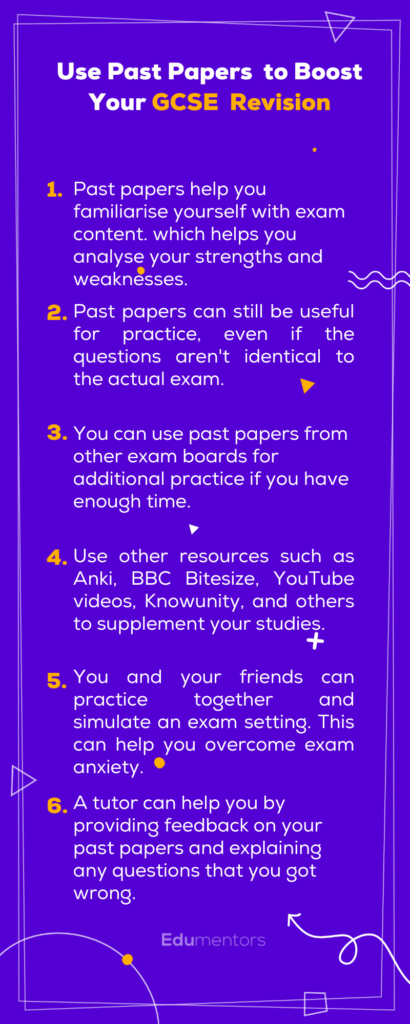AQA
Paper 1 – How Markets Work
| Question Paper | Mark Scheme |
| June 2019 | June 2019 |
| June 2020 | June 2020 |
| November 2021 | November 2021 |
Paper 2 – How the Economy Works
| Question Paper | Mark Scheme |
| June 2019 | June 2019 |
| June 2020 | June 2020 |
| November 2021 | November 2021 |
OCR
Paper 1 – Introduction to Economics
| Question Paper | Mark Scheme |
| June 2019 | June 2019 |
| November 2020 | November 2020 |
| November 2021 | November 2021 |
Paper 2 – National and International Economics
| Question Paper | Mark Scheme |
| June 2019 | June 2019 |
| November 2020 | November 2020 |
| November 2021 | November 2021 |
FAQ About GCSE Economics

What is GCSE Economics?
GCSE Economics refers to the study of basic economic concepts, principles, and theories at the General Certificate of Secondary Education (GCSE) level. GCSEs are qualifications typically taken by students in the United Kingdom, usually around the age of 15-16 years old, as part of their secondary education.
GCSE Economics introduces students to the fundamental principles and theories of economics, enabling them to develop a basic understanding of how the economy functions, how individuals and businesses make economic decisions, and how governments influence economic outcomes. It covers various aspects of microeconomics (individuals and firms) and macroeconomics (the economy as a whole).
Through studying GCSE Economics, students learn about key economic concepts such as supply and demand, market structures, economic growth, inflation, unemployment, fiscal and monetary policies, international trade, and globalization. They also develop skills in analyzing economic data, interpreting economic graphs and charts, and evaluating economic issues and policies.
The study of GCSE Economics provides students with a solid foundation for further studies in economics or related fields at the A-levels and university level. It also equips students with transferable skills such as critical thinking, problem-solving, data analysis, and decision-making, which are valuable in various academic and professional pursuits.
Overall, GCSE Economics aims to cultivate economic literacy, enabling students to understand and navigate the complex economic forces that shape our society and the global economy.
What is the purpose of studying Economics at the GCSE level?
Studying Economics at the GCSE level serves several important purposes:
- Economic literacy: GCSE Economics provides students with a foundational understanding of how economies function, helping them become informed and engaged citizens. It equips them with the knowledge and skills to analyze and comprehend economic issues that affect individuals, businesses, and society as a whole.
- Practical life skills: Economics introduces students to concepts such as budgeting, personal finance, and making informed consumer choices. These skills are essential for managing personal finances, making sound financial decisions, and understanding the economic implications of their choices.
- Career readiness: Economics offers insights into various industries, market structures, and business operations. It helps students develop a business mindset, critical thinking skills, and an understanding of how economic factors impact different sectors. This knowledge is beneficial for future careers in business, finance, entrepreneurship, public policy, and other related fields.
- Decision-making skills: Studying Economics enhances students’ ability to think critically, analyze data, and evaluate different options when faced with economic dilemmas. It fosters skills in weighing costs and benefits, understanding opportunity costs, and making rational decisions based on economic reasoning.
- Preparation for further studies: GCSE Economics provides a solid foundation for students who wish to pursue economics at advanced levels, such as A-levels or university degrees. It introduces them to key economic concepts, theories, and methodologies, giving them a head start in more advanced studies.
- Understanding societal issues: Economics explores topics such as poverty, inequality, unemployment, and environmental sustainability. By studying Economics at the GCSE level, students gain insights into the economic factors that shape these issues and potential policy solutions. It promotes a deeper understanding of social challenges and encourages critical thinking about their causes and potential remedies.
- Global perspective: Economics has a global dimension, and studying it at the GCSE level helps students develop an awareness of the interconnectedness of economies around the world. They learn about international trade, globalization, and the economic challenges faced by different countries, fostering a broader perspective on global issues.
In summary, studying Economics at the GCSE level equips students with essential economic knowledge, skills, and perspectives that are valuable for their personal lives, future careers, and understanding the complex economic forces at play in the world.
What topics are covered in GCSE Economics?
GCSE Economics covers a range of key topics that provide students with a foundational understanding of economic principles and concepts. The specific topics may vary slightly depending on the exam board or curriculum being followed. Here are some common topics covered in GCSE Economics:
- Introduction to Economics:
- Basic economic concepts and definitions
- Factors of production (land, labor, capital, enterprise)
- Scarcity, choice, and opportunity cost
- Microeconomics:
- Supply and demand
- Market structures (perfect competition, monopoly, oligopoly)
- Price determination and the role of the market
- Elasticity of demand and supply
- Consumer and producer behavior
- Market failure and government intervention
- Macroeconomics:
- National income and economic growth
- Inflation and deflation
- Unemployment and the labor market
- Fiscal policy (government spending and taxation)
- Monetary policy (central banks, interest rates)
- Exchange rates and international trade
- Personal Finance:
- Budgeting and personal financial management
- Income, expenses, and savings
- Credit, debt, and borrowing
- Understanding taxes and insurance
- Making informed consumer choices
- Globalization and International Economics:
- Benefits and challenges of globalization
- Comparative advantage and specialization
- Trade agreements and organizations (e.g., WTO)
- Balance of payments and exchange rates
- Economic development and sustainable development
- Economic Issues and Policies:
- Poverty and income inequality
- Environmental sustainability
- Economic impacts of government policies
- The role of the government in the economy
- Evaluating economic data and statistics
These topics provide students with a broad understanding of both microeconomic and macroeconomic principles, personal finance, and the economic issues that affect individuals, societies, and the global economy. It is important to consult the specific curriculum or exam board guidelines for the precise topics covered in the GCSE Economics course you are studying.
What are the key skills and knowledge gained from studying GCSE Economics?
Studying GCSE Economics equips students with a range of valuable skills and knowledge that are applicable in various academic, professional, and everyday life contexts. Here are some key skills and knowledge gained from studying GCSE Economics:
- Economic Literacy: Students develop a solid understanding of economic concepts, principles, and theories. They gain knowledge about how economies function, how individuals and businesses make economic decisions, and the role of government in influencing economic outcomes.
- Critical Thinking: GCSE Economics encourages students to think critically and analyze economic issues from multiple perspectives. They learn to evaluate evidence, consider the costs and benefits of different choices, and develop logical arguments based on economic reasoning.
- Data Analysis: Students acquire skills in analyzing and interpreting economic data, graphs, and charts. They learn how to extract meaningful information from economic indicators, such as inflation rates, unemployment figures, and GDP growth, enabling them to make informed judgments about economic trends and conditions.
- Problem-Solving: Economics presents students with real-world economic problems and challenges, encouraging them to develop problem-solving skills. They learn to apply economic concepts and theories to identify potential solutions and evaluate the effectiveness of different approaches.
- Numeracy and Mathematical Skills: GCSE Economics involves working with numerical data, calculating percentages, understanding graphs, and interpreting mathematical relationships. Students enhance their numeracy skills, which are essential for analyzing economic data and making quantitative assessments.
- Communication: Studying GCSE Economics helps students improve their communication skills. They learn to express economic concepts and arguments effectively, both in written form and through verbal presentations. Students develop the ability to communicate complex economic ideas clearly and concisely.
- Research and Information Literacy: Economics requires students to conduct research, gather relevant information, and critically evaluate sources. They learn to differentiate between reliable and biased information, strengthening their research and information literacy skills.
- Financial Literacy: GCSE Economics often includes personal finance topics, such as budgeting, saving, investing, and understanding credit and debt. Students develop practical financial management skills that are applicable to their personal lives, equipping them with knowledge to make informed financial decisions.
- Global Awareness: Economics has a global dimension, and studying it exposes students to international trade, globalization, and economic interdependencies. They gain a broader understanding of global economic issues, cultural diversity, and the interconnectedness of economies worldwide.
- Transferable Skills: Studying GCSE Economics cultivates transferable skills, such as logical reasoning, problem-solving, critical analysis, data interpretation, and effective communication. These skills are applicable in various academic disciplines and professional settings, contributing to students’ overall skill set.
Overall, studying GCSE Economics empowers students with a strong foundation in economic literacy, critical thinking, data analysis, and problem-solving skills. It equips them with practical knowledge that is relevant to their personal lives and provides a basis for further studies in economics or related fields at higher education levels.
How can I prepare effectively for GCSE Economics exams?
To prepare effectively for GCSE Economics exams, consider the following tips:
- Understand the Exam Format: Familiarize yourself with the structure and format of the exam. Understand the types of questions, time limits, and allocation of marks for each section. This will help you plan your study and revision strategies accordingly.
- Review the Syllabus: Thoroughly go through the GCSE Economics syllabus to ensure you understand all the topics and subtopics that will be covered in the exam. Create a checklist or study plan to track your progress and make sure you cover all the necessary content.
- Study Resources: Utilize a variety of study resources such as textbooks, online resources, revision guides, and reputable websites. Choose resources that align with your exam board’s curriculum and make sure they cover the required topics comprehensively.
- Past Papers: Practice past papers from previous years’ exams. Past papers are invaluable resources that familiarize you with the exam format, question styles, and the level of difficulty. They also help you identify areas where you may need to improve and become more comfortable with answering questions effectively.
- Time Management: Develop effective time management skills to ensure you allocate sufficient time to each topic and have enough time for revision and practice. Create a study schedule that allows you to cover all the topics within the available time before the exams.
- Take Notes and Summarize: While studying, take detailed notes and create summaries of key concepts, formulas, and definitions. This will help you consolidate your understanding and make revision more efficient.
- Active Learning: Engage in active learning techniques such as explaining concepts to others, creating mind maps or diagrams, and teaching the material to yourself. This helps reinforce your understanding and improves retention.
- Seek Clarification: If you encounter difficult concepts or have questions, don’t hesitate to seek clarification from your teacher, classmates, or online communities dedicated to GCSE Economics. Understanding concepts fully is crucial for exam success.
- Practice Numerical Questions: Economics often involves calculations and numerical problems. Practice solving numerical questions, applying relevant formulas, and interpreting data accurately.
- Review and Evaluate: After completing practice papers or revision sessions, review your answers, and identify areas for improvement. Pay attention to the feedback provided on marked practice papers to understand your strengths and weaknesses.
- Mock Exams: Consider taking mock exams under exam conditions to simulate the real exam experience. This helps build your confidence, improve time management, and identify areas that may need further attention.
- Revise Regularly: Avoid last-minute cramming and revise regularly throughout your preparation period. Spacing out your revision sessions over time enhances long-term retention of the material.
Remember, effective preparation involves a combination of understanding concepts, practicing exam-style questions, and reviewing your progress regularly. Stay organized, manage your time effectively, and stay focused during your preparation to maximize your chances of success in the GCSE Economics exams.
How much maths is involved in GCSE Economics?
GCSE Economics involves a moderate level of mathematics. While it is not a purely mathematical subject like Mathematics or Physics, a basic understanding and application of mathematical concepts are necessary to analyze and interpret economic data, graphs, and charts. Here are some key mathematical skills and concepts you can expect to encounter in GCSE Economics:
- Basic Arithmetic: You will need to perform calculations involving addition, subtraction, multiplication, and division. This includes working with percentages, ratios, and proportions.
- Interpreting Data: Economics often involves analysing and interpreting numerical data presented in tables, charts, and graphs. You should be able to read and extract relevant information from these data representations.
- Graphical Analysis: You will encounter graphs such as supply and demand curves, production possibility frontiers, and aggregate demand and supply diagrams. You need to understand how to interpret and analyze these graphs to answer questions related to economic concepts and relationships.
- Calculating Elasticities: You may be required to calculate price elasticity of demand or supply, income elasticity, or cross elasticity. These calculations involve the use of formulas and understanding the concept of elasticity.
- Basic Statistical Concepts: You might encounter basic statistical measures like averages (mean, median, mode), range, and percentages in relation to economic data and analysis.
- Simple Calculations: Occasionally, you may need to perform calculations related to economic indicators, such as calculating changes in GDP, inflation rates, or unemployment rates over time.
It’s important to note that the emphasis in GCSE Economics is more on the understanding and application of economic concepts rather than complex mathematical calculations. However, a solid foundation in basic math skills will aid your comprehension and analysis of economic data. Make sure to practice these mathematical skills within an economic context to enhance your overall understanding and performance in GCSE Economics exams.
What career paths can studying GCSE Economics lead to?
Studying GCSE Economics can open up a range of career paths and opportunities across various industries. Here are some potential career paths that studying GCSE Economics can lead to:
- Business and Finance: GCSE Economics provides a strong foundation for careers in business and finance. You can pursue roles in banking, investment, financial analysis, consulting, and accounting. Economics knowledge helps you understand market dynamics, financial decision-making, and economic trends, making you a valuable asset in these fields.
- Public Policy and Government: Understanding economic principles and policies equips you for careers in public policy and government. You can work in areas such as economic development, public administration, policy analysis, and research. You may contribute to shaping government policies, conducting economic impact assessments, or advising on economic matters at local, national, or international levels.
- Economics Research and Analysis: GCSE Economics lays the groundwork for further studies in economics or related disciplines. You can pursue careers in economic research, analysis, and forecasting. This may involve working for think tanks, research institutions, economic consulting firms, or international organizations.
- International Organizations: Economic literacy gained from studying GCSE Economics can lead to opportunities in international organizations like the United Nations (UN), World Bank, International Monetary Fund (IMF), and World Trade Organization (WTO). You can work on global economic issues, international development projects, trade negotiations, or policy analysis at the international level.
- Marketing and Market Research: Understanding supply and demand, consumer behavior, and market dynamics from GCSE Economics can be advantageous in marketing and market research roles. You can work in market analysis, consumer insights, product management, or strategic planning for companies across various industries.
- Entrepreneurship and Start-ups: Studying economics can provide valuable insights into market conditions, business strategies, and risk assessment, making it beneficial for aspiring entrepreneurs. You can apply economic principles to identify market opportunities, analyze competition, and make informed decisions when starting and managing your own business.
- Environmental and Sustainable Development: The understanding of economic concepts such as externalities, market failure, and sustainability gained from studying GCSE Economics can be valuable for careers in environmental management, sustainable development, and green economy sectors. You can work on addressing environmental challenges, developing sustainable business practices, or formulating policies for a greener future.
- Teaching and Education: Studying GCSE Economics can also pave the way for a career in teaching and education. With further qualifications and training, you can become an economics teacher, sharing your knowledge and passion for the subject with future generations.
These are just a few examples, and the skills and knowledge gained from studying GCSE Economics can be relevant in various other fields as well. The versatility of economics opens doors to diverse career options, allowing you to apply economic principles and analytical thinking in different professional settings.








